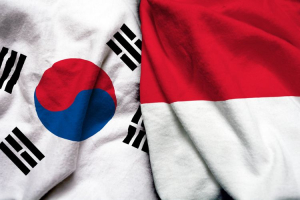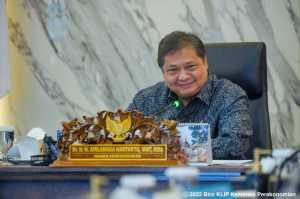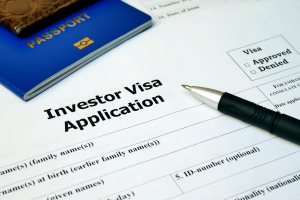Indonesia targets completion of three trade agreements to prevent dual deficits
The Coordinating Ministry for Economy aims to finalize three significant trade agreements by the end of this year to prevent potential dual deficits − both in the balance of payments and the fiscal balance.
Edi Prio Pambudi, Deputy for International Economic Cooperation at the Ministry, reassured stakeholders not to be overly concerned about the deficits, attributing economic challenges to external pressures rather than domestic issues.
“The problem lies with external pressures. All currencies globally are weakening due to U.S. policies,” Edi said on Thursday, May 30, 2024.
To address these challenges, Edi emphasized expanding Indonesia’s trade partnerships under the nation's free and active foreign policy. This approach ensures that selected trading partners recognize Indonesia’s non-aligned stance.
Edi highlighted that mutual benefits are the primary criterion in expanding international trade partnerships. Moreover, the government aims to engage with more attractive partners than current ones.
The three targeted trade agreements are the Indonesia-European Union Comprehensive Economic Partnership Agreement (IEU-CEPA), the Indonesia-Eurasian Economic Union Free Trade Agreement, and the Comprehensive and Progressive Agreement for Trans-Pacific Partnership (CPTPP).
These agreements will expand Indonesia's trade partners to 43 countries, including 27 EU member states, 11 CPTPP countries, and five Eurasian Economic Union members.
Edi projected that the IEU-CEPA could boost Indonesia's real economic growth by 0.19 percent and increase state revenue by up to US$2.8 billion. Additionally, exports to European countries could rise by 57.76 percent.
In 2023, Indonesia’s exports to the Eurasian Economic Union were valued at US$1.1 billion, while imports from the union reached US$2.7 billion.
Key exports included palm oil, copra, television sets, and electrical machinery, whereas major imports comprised coal, fertilizers, semi-finished iron and steel products, and wheat.
One of Indonesia's goals in joining the CPTPP is to enhance car exports to Latin America, particularly Mexico. Edi noted that the free trade agreement could reduce import tariffs on Indonesian cars in Mexico, thereby increasing export volumes.
“That’s why we are actively engaging and forming collaborations with these countries,” he added.
According to the Statistics Indonesia (BPS), Indonesia recorded a trade surplus of US$3.56 billion in April 2024, a decrease of US$1.02 billion from the previous month.
Cumulatively, from January to April 2024, the trade surplus reached US$10.97 billion, down from US$16.05 billion in the same period last year.
This declining surplus impacts the government's ability to repay debts. In April 2024, exports amounted to US$19.62 billion, down 12.97 percent month-on-month but up 1.72 percent year-on-year.
Meanwhile, imports were US$16.06 billion, a 10.60 percent monthly decline but a 4.62 percent annual increase.
Already have an account? Sign In
-
Start reading
Freemium
-
Monthly Subscription
30% OFF$26.03
$37.19/MonthCancel anytime
This offer is open to all new subscribers!
Subscribe now -
Yearly Subscription
33% OFF$228.13
$340.5/YearCancel anytime
This offer is open to all new subscribers!
Subscribe now





